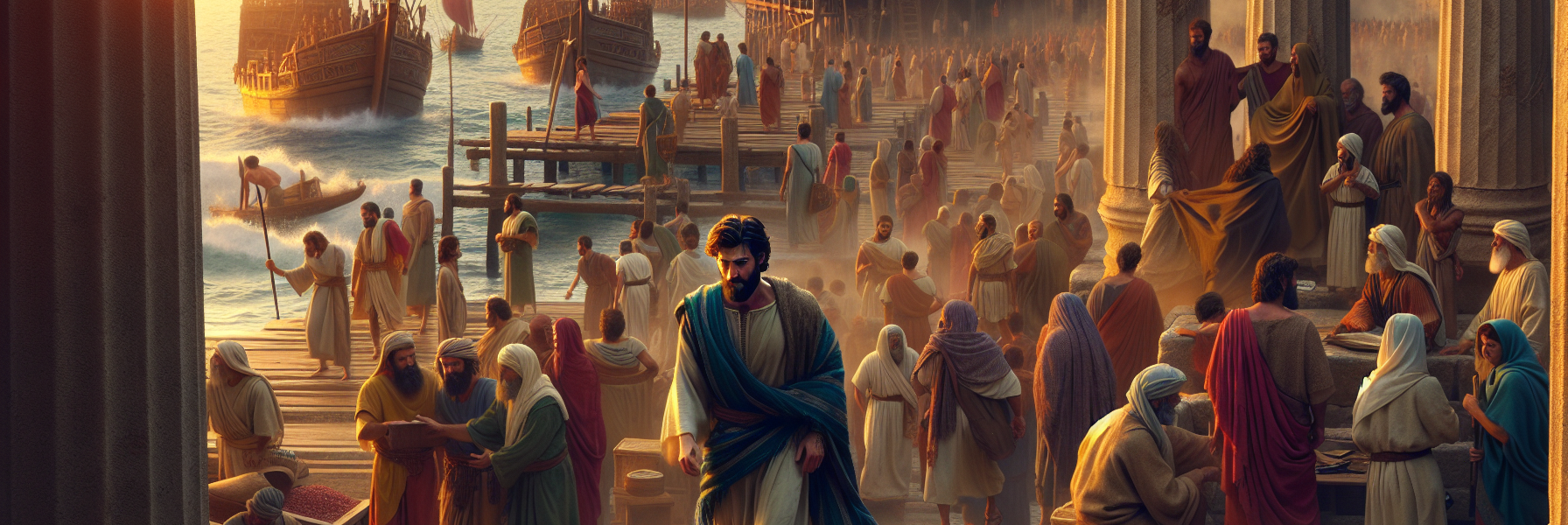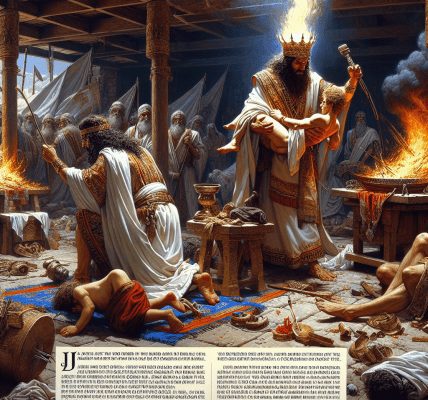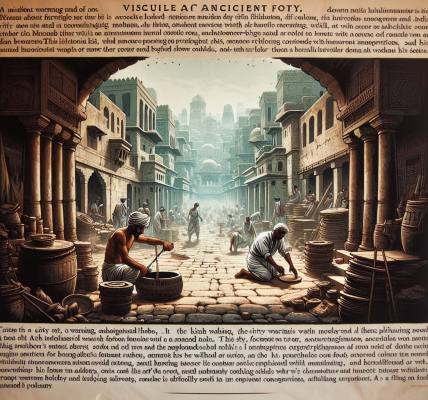**The Appointment of Elders in Crete**
The sun hung low over the rocky shores of Crete, casting long shadows across the bustling port of Heraklion. Ships from distant lands unloaded their wares, while merchants haggled in the crowded marketplace. The air was thick with the scent of salt and olive oil, mingling with the distant sound of waves crashing against the stone docks.
Among the throngs of people, a man named Titus moved with purpose. He was a trusted companion of the Apostle Paul, a Greek believer whose faith had been refined through years of service. Paul had left him in Crete with a weighty task—to appoint elders in every town, ensuring that the fledgling churches were shepherded by men of godly character.
Titus carried with him a letter from Paul, its words etched deeply into his heart. The instructions were clear: the leaders of the church must be above reproach, for the island was known for its moral decay. The Cretans themselves had a saying, *”Cretans are always liars, evil beasts, lazy gluttons,”* and even their own prophets had testified to it. The church needed strong, faithful men to stand against such deception.
### **The Search for Godly Men**
Titus began his journey in the city of Gortyna, where a small group of believers gathered in the home of a wealthy merchant named Demas. The room was dimly lit by oil lamps, their flickering light dancing across the faces of those assembled. Titus stood before them, his voice steady yet filled with urgency.
*”Brothers,”* he began, *”the work of the gospel must not be hindered by unworthy leaders. The overseer of God’s household must be blameless—not arrogant, not quick-tempered, not given to drunkenness, not violent, not greedy for gain. Instead, he must be hospitable, a lover of good, self-controlled, upright, holy, and disciplined.”*
A murmur spread through the room. Some nodded in agreement, while others shifted uncomfortably. One man, a respected elder named Jason, leaned forward.
*”Titus,”* he said, *”how shall we know such men? The temptations of Crete are many, and even the faithful struggle.”*
Titus met his gaze. *”We must look for those whose lives reflect Christ. Men who hold firm to the trustworthy word as taught, so that they may give instruction in sound doctrine and rebuke those who contradict it.”*
### **Confronting False Teachers**
Word of Titus’ mission spread quickly, and not all welcomed it. In the coastal town of Knossos, a group of Jewish legalists had infiltrated the church, insisting that Gentile believers must follow the Law of Moses to be saved. They disrupted gatherings, sowing division among the brethren.
Titus confronted them boldly. *”You must silence these deceivers,”* he declared to the local believers. *”They are upsetting whole families, teaching for shameful gain what they ought not to teach. Their mouths must be stopped!”*
A heated debate ensued, but Titus stood firm. He appointed elders who could refute error with truth, men like Ariston, a former philosopher whose sharp mind had once sought wisdom in empty arguments but now delighted in the gospel.
### **The Ordination of Elders**
As weeks passed, Titus traveled from town to town, examining each candidate with care. In the city of Lyttos, he found a man named Linus, a father whose children were believers, known for their reverence and obedience. Linus was neither domineering nor greedy but had opened his home to strangers and cared for the poor.
Under the shade of an ancient olive tree, Titus laid his hands upon Linus and the other chosen men, praying fervently. *”May the Lord grant you wisdom to shepherd His flock, to guide them in truth, and to stand against the works of darkness.”*
### **A Church Strengthened**
By the time Titus completed his task, the churches of Crete stood on firmer ground. The elders, now established in their roles, taught with confidence, silencing the empty talk of false teachers. Families once torn by strife found unity in sound doctrine.
As Titus prepared to depart for Nicopolis, where Paul awaited him, he looked back at the island with a sense of fulfillment. The work had been difficult, but necessary. The words of Paul’s letter echoed in his mind:
*”For the grace of God has appeared, bringing salvation for all people, training us to renounce ungodliness and worldly passions, and to live self-controlled, upright, and godly lives in the present age.”*
With a final prayer for the believers, Titus set sail, knowing that the Lord would continue the good work He had begun in Crete.



